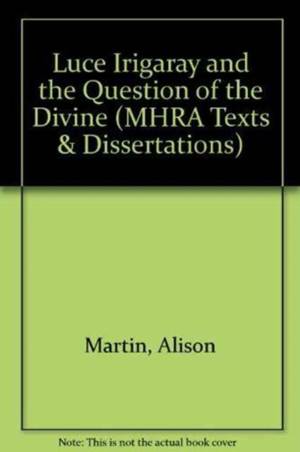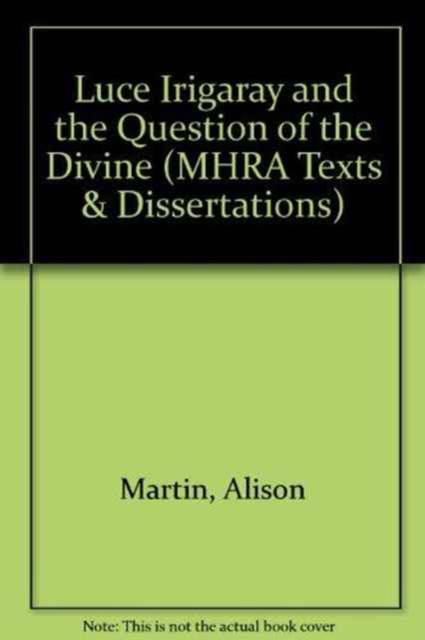
- Afhalen na 1 uur in een winkel met voorraad
- Gratis thuislevering in België vanaf € 30
- Ruim aanbod met 7 miljoen producten
- Afhalen na 1 uur in een winkel met voorraad
- Gratis thuislevering in België vanaf € 30
- Ruim aanbod met 7 miljoen producten
Zoeken
Omschrijving
This study examines Luce Irigaray's oeuvre through the question of the divine, focusing upon her contention that women need a female divine if they are about to become subjects. It attempts to demonstrate that the issue of the divine should not be considered as one aspect of her thought but that it is central to her philosophy of sexual difference. Hence Irigaray's critique of patriarchy is presented as a critique of the dominance of a religion of masculinity that favours a single universal. Her proposal for two sexed universal divines is explored, along with her specific suggestions for female divine ideals. Particular emphasis is given to her engagements with Marx, Nietzsche, and Hegelianism, and to the mode of her adoption of Christianity. The study applauds the radical profundity of Irigaray's philosophy of sexual difference, while remaining critical of the universalism in her notion of the divine for the doubt it casts upon the realization of a sexed culture.
Specificaties
Betrokkenen
- Auteur(s):
- Uitgeverij:
Inhoud
- Aantal bladzijden:
- 234
- Taal:
- Engels
- Reeks:
- Reeksnummer:
- nr. 53
Eigenschappen
- Productcode (EAN):
- 9781902653303
- Verschijningsdatum:
- 1/07/2000
- Uitvoering:
- Hardcover
- Formaat:
- Genaaid

Alleen bij Standaard Boekhandel
+ 78 punten op je klantenkaart van Standaard Boekhandel
Beoordelingen
We publiceren alleen reviews die voldoen aan de voorwaarden voor reviews. Bekijk onze voorwaarden voor reviews.











